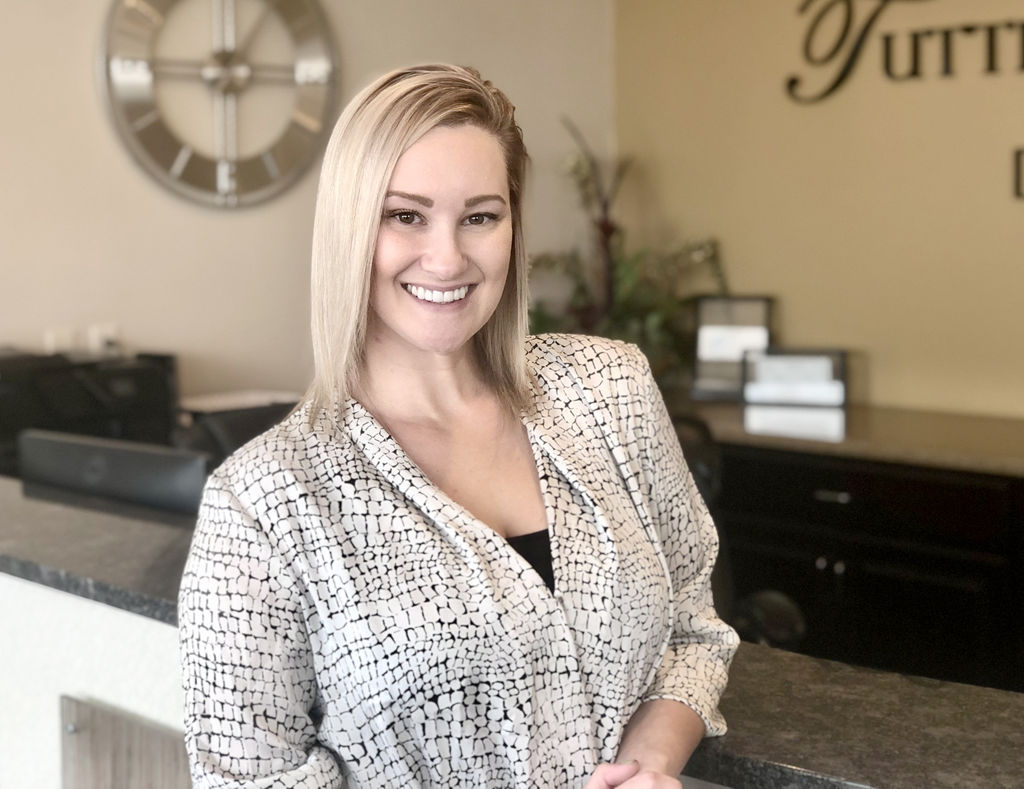
Dear Insurance Company: You’re Not the Dentist.
By Tessina “Tess” Bullock, President of Verus Dental and Co-Founder of Veritas Dental Resources
The Ongoing Fight for SRP Claim Approval
Imagine this:
You diagnose active periodontal disease.
You have the radiographs.
You have the perio charting.
You have bleeding.
You have pus.
You even have a patient who finally agreed to treatment.
You submit the claim.
DENIED.
Why?
Because someone sitting behind a desk 1,200 miles away (who hasn’t seen the patient, hasn’t examined the pocket depths, and probably hasn’t flossed since 2009) has decided that SRP is not "medically necessary."
Cue the rage.
Cue the patient confusion.
Cue the front office team now playing therapist, coder, and gladiator in an unwinnable battle against dental insurance bureaucracy.
The Reality Dentists Are Facing
Insurance companies are increasingly denying claims for D4341 and D4342, especially when:
Patients are asymptomatic (in their opinion).
There's no visible bone loss (based on their interpretation).
They’ve decided the patient isn’t "periodontally involved enough" for SRP.
But here’s the kicker: You (the dentist) are legally responsible for accurate diagnosis. Not them.
How to PREVENT SRP Denials: Proactive Protocols
If you want your claims to stand a fighting chance, you must build an airtight clinical and administrative defense. Here's how:
1. Thorough Perio Charting
Six-point probing per tooth.
Record bleeding on probing (BOP), recession, mobility, furcations.
Circle anything alarming like a crime scene.
Because to insurance, if it isn’t documented, it didn’t happen.
2. Clear, Recent Radiographs
Full-mouth series (FMX) within 6–12 months is ideal.
Measure both vertical and horizontal bone loss.
Annotations or notes on digital films can help (circle bone loss, note it in the comments).
3. Narrative Power
Don’t rely on generic narratives like:
*"Patient has 5+mm pockets. SRP recommended."*
Instead, try:
"Patient presents with generalized 5–6mm pockets with BOP and localized vertical bone loss evident on FMX. Presence of Class I furcation on #30 and mobility on #24. SRP necessary to prevent disease progression and avoid potential tooth loss."
Bonus: Use inflammatory words insurance hates to deny like:
"Progressive"
"Chronic"
"Advanced"
"Infection"
"Systemic impact"
4. Pre-Authorization (When in Doubt)
It slows down the process but may save your soul (and your claims).
Submit all the above documentation up front.
If denied, you now have a paper trail to escalate the issue.
5. Don’t Submit SRP and Prophy Together
Insurance companies love to reject SRP if they see a D1110 done on the same day.
Instead:
Separate D4341/D4342 and D1110 by date.
If you must treat quadrant 1 and do a cleaning on quadrant 3 the same day, use documentation and separate notes for each.
6. Track Carrier Trends
Some plans have patterns, like requiring perio charting every six months or denying all D4342s unless you include 7 paragraphs and a blood sample.
Use this intel to build internal cheat sheets.
What to Do AFTER a Denial: Tips to Overturn It
Appeal Letter Template (Short + Strong)
*"To Whom It May Concern:
I am requesting a reconsideration of the denied claim for D4341/D4342 performed on [date]. This treatment was not elective; it was medically necessary based on clinical findings. Enclosed are:
Periodontal charting
FMX showing bone loss
Clinical narrative detailing findings and rationale for treatment.
I respectfully request that the claim be reviewed by a licensed dental professional.Dr. [Name]"*
Always resubmit with additional documentation, even if they already have it. Many appeals win simply because the second reviewer isn’t as cranky as the first.
Get a Peer-to-Peer Review (If Offered)
Some carriers allow a licensed dentist to speak with another licensed dentist.
Spoiler: it’s not always great, but better than dealing with Karen in accounting.
Educate the Patient
If all else fails, let the patient know:
"Your insurance chose not to cover a necessary medical procedure. This denial doesn’t reflect your oral health needs (it reflects their cost-cutting priorities)."
Let patients carry some of that fire into their next HR meeting.
Final Thoughts: Stand Your Ground
SRP is not optional.
It’s not cosmetic.
It’s not some optional spa service.
It is critical medical treatment for managing chronic bacterial infection that destroys tissue and bone.
So when insurance companies say "we don’t think the patient needs it," remind them of this:
"You are not the treating dentist. You are not legally responsible for the patient. I am. And I will not let an insurance desk clerk dictate my standard of care."
Then appeal.
Document.
Educate your patients.
And if you need backup, get a coach who eats insurance denials for breakfast (like the experts at Veritas Dental Resources).
Quick Recap:
Chart everything (thorough perio charting is your strongest defense).
Submit full narratives, radiographs, and evidence of bone loss.
Appeal with specific language.
Separate SRP and prophy appointments.
Stay educated on policy trends.
Don’t roll over (fight with facts, not frustration).

